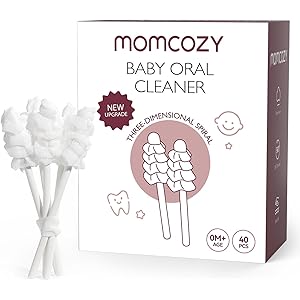Amazon Brand - Mama Bear Gentle Touch Diapers, Size 5, 132 Count (4 packs of 33)
$34.44 (as of October 13, 2025 17:48 GMT +00:00 - More infoProduct prices and availability are accurate as of the date/time indicated and are subject to change. Any price and availability information displayed on [relevant Amazon Site(s), as applicable] at the time of purchase will apply to the purchase of this product.)Understanding Prenatal Care Providers
Prenatal care providers are essential healthcare professionals who specialize in the care of pregnant individuals. They play a crucial role in monitoring the health of both the mother and the developing fetus throughout pregnancy. These providers can include obstetricians, midwives, family physicians, and nurse practitioners, each bringing unique expertise to prenatal care.
The Role of Obstetricians in Prenatal Care
Obstetricians are medical doctors who specialize in pregnancy and childbirth. They are trained to handle complications that may arise during pregnancy and are equipped to perform cesarean sections if necessary. Obstetricians typically provide comprehensive prenatal care, including regular check-ups, ultrasounds, and necessary screenings to ensure the health of both mother and baby.
Midwives: A Personalized Approach to Prenatal Care
Midwives offer a more personalized approach to prenatal care, often focusing on natural childbirth and holistic health practices. They provide education and support throughout pregnancy, labor, and postpartum recovery. Midwives can work in various settings, including hospitals, birthing centers, and home births, and they emphasize the importance of informed choices in the birthing process.
Family Physicians and Prenatal Care
Family physicians are versatile healthcare providers who can offer prenatal care as part of their broader practice. They are trained to care for patients of all ages and can provide continuity of care throughout a woman’s life, including during pregnancy. Family physicians often collaborate with obstetricians and midwives to ensure comprehensive care for expectant mothers.
Nurse Practitioners in Prenatal Care
Nurse practitioners (NPs) are advanced practice registered nurses who can provide a range of healthcare services, including prenatal care. NPs can perform physical exams, order tests, and prescribe medications, making them valuable members of the prenatal care team. They often focus on patient education and preventive care, helping mothers make informed decisions about their pregnancy.
Importance of Regular Prenatal Visits
Regular prenatal visits with a qualified prenatal care provider are vital for monitoring the health of both the mother and the fetus. These visits typically include routine check-ups, blood tests, and ultrasounds to track the baby’s development. Early and consistent prenatal care can help identify potential issues early on, allowing for timely interventions and better outcomes.
Screenings and Tests During Pregnancy
Prenatal care providers conduct various screenings and tests throughout pregnancy to ensure the health of the mother and baby. Common tests include blood tests for genetic conditions, glucose screening for gestational diabetes, and ultrasounds to monitor fetal growth. These assessments help providers make informed decisions about the care needed during pregnancy.
Nutrition and Lifestyle Guidance from Prenatal Care Providers
Prenatal care providers also play a significant role in advising expectant mothers on nutrition and lifestyle choices. They provide guidance on maintaining a balanced diet, managing weight gain, and avoiding harmful substances. This support is crucial for promoting the health of both the mother and the developing fetus throughout pregnancy.
Emotional Support and Counseling
The journey of pregnancy can be emotionally challenging, and prenatal care providers offer essential emotional support and counseling. They help mothers navigate the physical and psychological changes that occur during pregnancy, providing resources and referrals for mental health support when needed. This holistic approach ensures that mothers feel supported throughout their pregnancy journey.
Choosing the Right Prenatal Care Provider
Selecting the right prenatal care provider is a personal decision that can significantly impact the pregnancy experience. Factors to consider include the provider’s qualifications, philosophy of care, and communication style. It is essential for expectant mothers to feel comfortable and supported by their prenatal care provider to foster a positive and healthy pregnancy experience.



